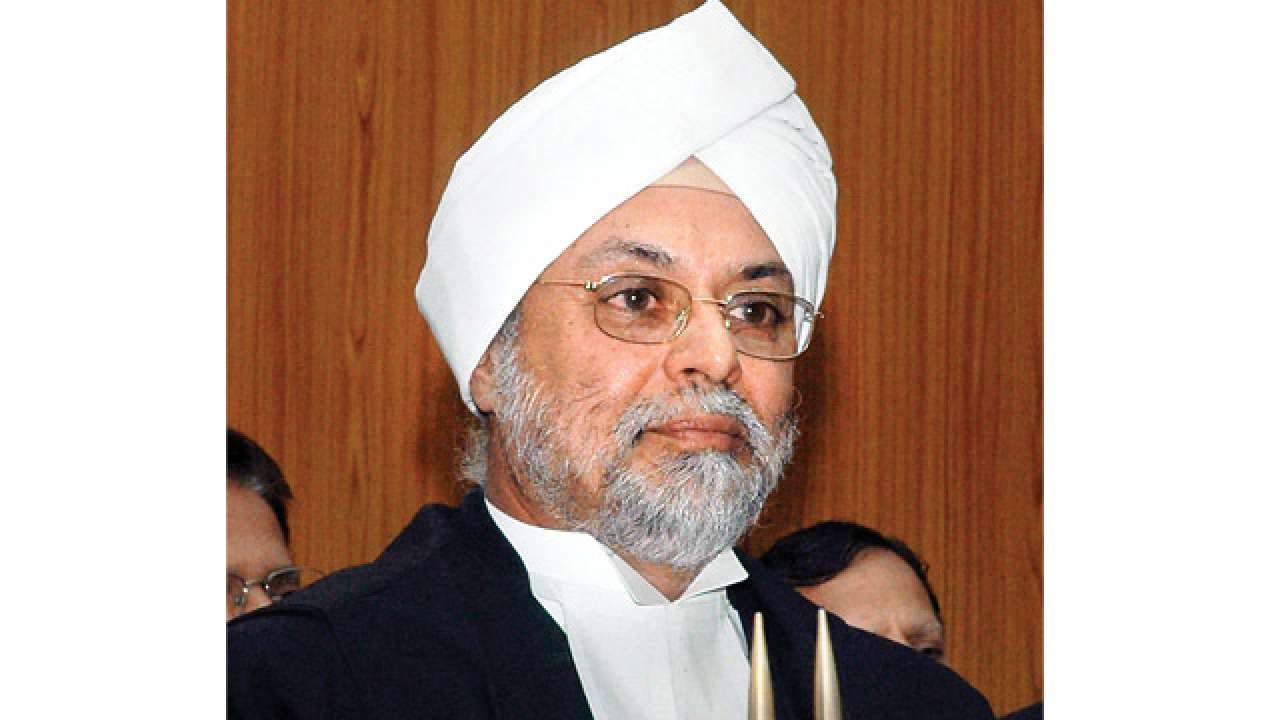
The prerequisite to comprehending the acumen of his Lordship, Chief Justice Jagdish Singh Khehar, is his judicial philosophy. The ensuing example will serve as a pointer. During the arguments in the CS Karnan Case, Senior Counsel KK Venugopal submitted to His Lordship that the Bench could punish a sitting Justice of High Court today or a retired Judge of the High Court a month later, implying a sense of salvage towards the judiciary’s sanctity.
This submission met with a retort by his Lordship saying the law does not apply differently to a sitting Justice or to a retired Judge and the law shall take its course.
The above buttresses the fact that His Lordship has a strong slant towards securing preambular aims of justice. His interpretation of the law always exhibits protection of constitutionalism and arch defence of constitutional values.
Justice V Ramaswami had seen immense potential and reposed trust in young Khehar by selecting him as his lawyer to defend him in a judicial inquiry, and subsequently impeachment proceedings against him. Justice Khehar was led by Mr Kapil Sibal and had the rare and a unique opportunity of addressing the Parliament of India in defence of Justice V Ramaswami.
In 2014, His Lordship was part of a division bench that rejected the writ petition on behalf of Sahara which alleged violations to principles of natural justice and upheld the order jailing Sahara chairman Subrata Roy.
His Lordship’s in-depth perception of law can be seen right from his High Court days. In Gurleen Kaur Vs State of Punjab, he beautifully explained the role courts should play in dealing with matters related to the question of faith.
He said, “Religion must be perceived as it is, and not as another would like it to be. The followers of a faith do not allow their beliefs to be questioned. Once a Court arrives at the conclusion that a particular aspect of a religion is fundamental and integral, as per the followers of the faith, it must be given effect to, irrespective of the views expressed on the said issue, based either on science or logic. It is not for the Court to determine whether it is forward looking or retrograde. Looking for an approach which would make the religion more acceptable to the present social thought of a forward looking section, shall certainly not be right.”
The NJAC Case saw a fierce protector of separation of powers and independence of the judiciary in him when he ruled that “Rule of law and independence of the judiciary are intertwined and inseparable as a part of the basic structure of the Constitution.” He added there is no question of accepting an alternate procedure which does not ensure primacy of the Judiciary in matters of selection and appointment of Judges to Supreme Court and High Courts, as also their transfers.
The Triple Talaq case (2017) which is a landmark judgment for our country has been beautifully dealt by the CJI by giving cogent reasons for his minority view. The last Constitution Bench delivered by him as the CJI was on the right to privacy. It would be remembered as one amongst India’s classic judgements that advanced horizons on legal jurisprudence; as right to privacy is a fundamental one now.
I must say that in all these judgements, one thing is common, that his writings are based not only on his conscience, but on the deep-rooted knowledge he possesses right from the days when he received the gold medal for his LLM to the days when he himself was an advocate in many of the landmark cases in our history.
From service law to election law to constitutional law; his flare of writing judgements reflected his personality i.e., being fair and just by balancing the scales of justice.
Chief Justice Khehar’s dedication and devotion to the Court and his approach of penning down judgements can be best described by Sonai Satamayor, an Associate Justice of the US Supreme who said, “My judicial philosophy is fidelity to the law.”
The author is president of the Supreme Court Bar Association